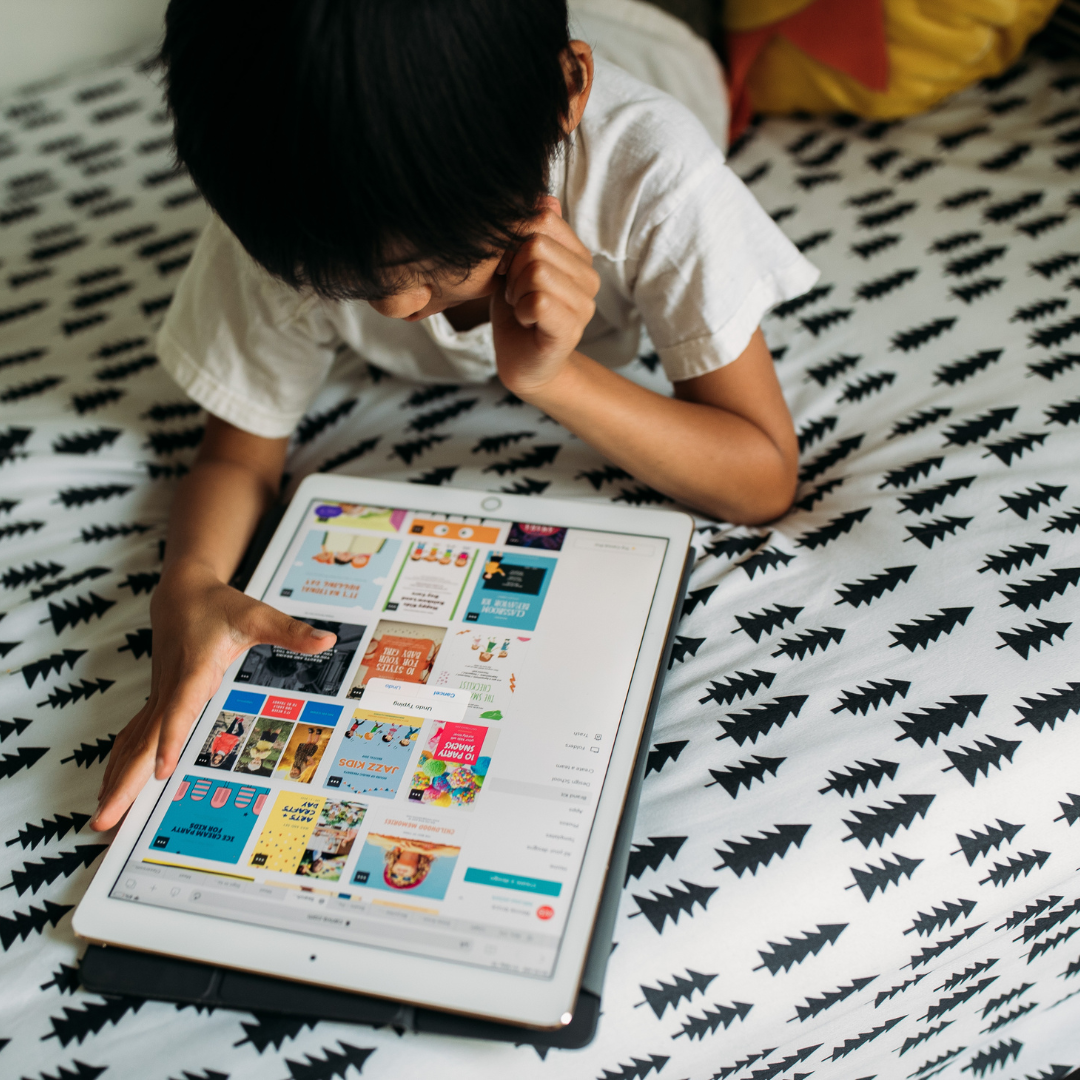Introduction
In our digital age, screens are an integral part of daily life, shaping how we communicate, learn, and entertain ourselves. For children, exposure to screens—whether through tablets, smartphones, televisions, or computers—has become increasingly common. While technology can offer educational benefits and instant connectivity, excessive screen time has been linked to a variety of negative impacts on children’s health and development. With rising numbers of children spending hours in front of screens, parents and caregivers are increasingly concerned about its detrimental effects. This blog post explores the adverse effects of screen time on kids and provides practical strategies for reducing screen exposure while promoting healthier alternatives.

The Negative Effects of Screen Time on Kids
1. Physical Health Issues
- Obesity: Extended screen time often leads to a sedentary lifestyle. Children who spend more time in front of screens are less inclined to engage in physical activity, which can increase the risk of obesity.
- Sleep Disruption: The blue light emitted by screens can disrupt the body’s natural sleep cycle, leading to difficulty falling asleep and reduced sleep quality. Poor sleep can affect a child’s mood and cognitive functioning.
2. Mental Health Concerns
- Increased Anxiety and Depression: Research indicates a correlation between excessive screen time and mental health issues, including anxiety and depression. The constant comparison on social media can negatively affect self-esteem and body image.
- Attention Problems: Studies suggest that children who spend more time on screens may experience difficulties with attention and concentration, affecting their performance in school and other activities.
3. Impaired Social Skills
- Reduced Face-to-Face Interaction: Spending too much time on screens can hinder the development of crucial social skills. Children may miss out on important interactions that occur in real-life settings.
- Dependency on Digital Communication: Over-reliance on digital platforms can lead to challenges in developing empathy and understanding nonverbal cues, which are essential for healthy relationships.
Strategies to Reduce Screen Time
1. Set Clear Limits
- Establish a Daily Schedule: Define specific times for screen use, ensuring that children understand when and how long they can use devices.
- Designate Screen-Free Times: Create family rules around tech-free meals and activities, encouraging interaction without distractions.
2. Encourage Other Activities
- Promote Outdoor Play: Encourage children to play outside, explore nature, or participate in sports. This not only keeps them active but also stimulates creativity.
- Introduce Hobbies: Help your child explore different hobbies like painting, crafting, or musical instruments. Find activities that engage their interests and capture their attention away from screens.
3. Be a Role Model
- Lead by Example: Children often imitate their parents. Demonstrate balanced screen usage by limiting your own screen time and engaging in non-screen activities together.
- Discuss Screen Time Together: Talk openly about the effects of screens and the importance of balance. Encourage children to share their opinions on screen time.
- Also, read this: https://infobilli.com/how-to-create-a-personalized-diet-plan/
4. Create Screen-Free Zones
- Establish Areas without Technology: Designate certain rooms or areas of your home—like bedrooms or the dining room—as screen-free zones to encourage interaction and relaxation without distractions.
5. Engage in Family Activities
- Plan Regular Family Outings: Organize activities that the whole family can enjoy together, such as hiking, biking, visiting parks, or participating in local events.
- Organize Game Nights: Replace screen-based entertainment with board games or card games that bring the family together for fun and bonding without screens.
Conclusion
Reducing screen time for kids is not only essential for their physical health but also plays a significant role in their mental well-being and social development. By understanding the potential negative impacts of excessive screen usage and implementing effective strategies, parents can create a balanced environment that promotes healthier habits. Through setting boundaries, encouraging other activities, and actively engaging with their children, families can help foster a more meaningful and less screen-dependent lifestyle. By being proactive and intentional about screen time, parents can pave the way for their children to thrive in a world filled with technology.


